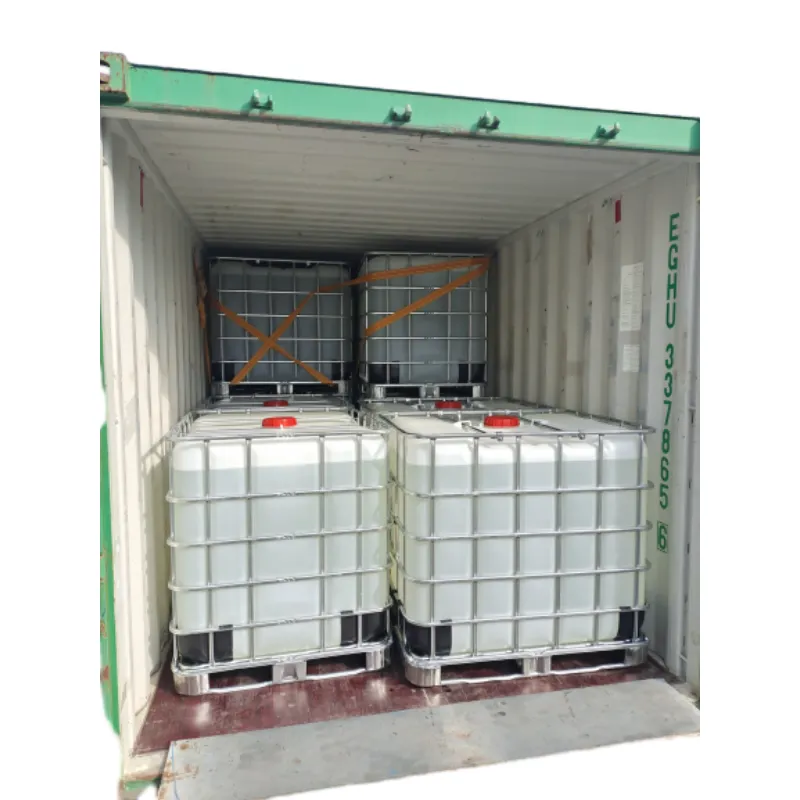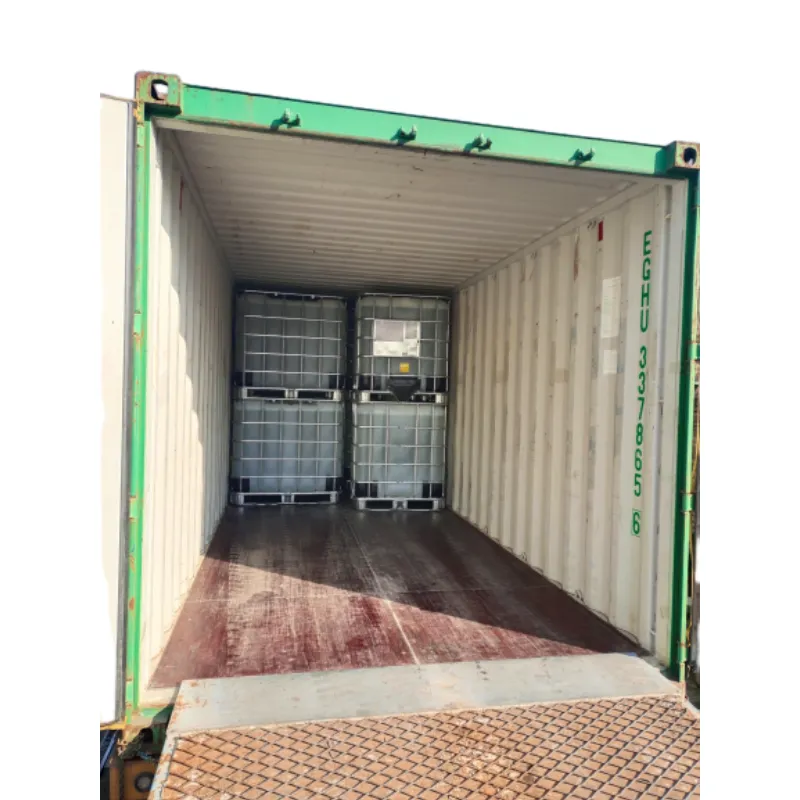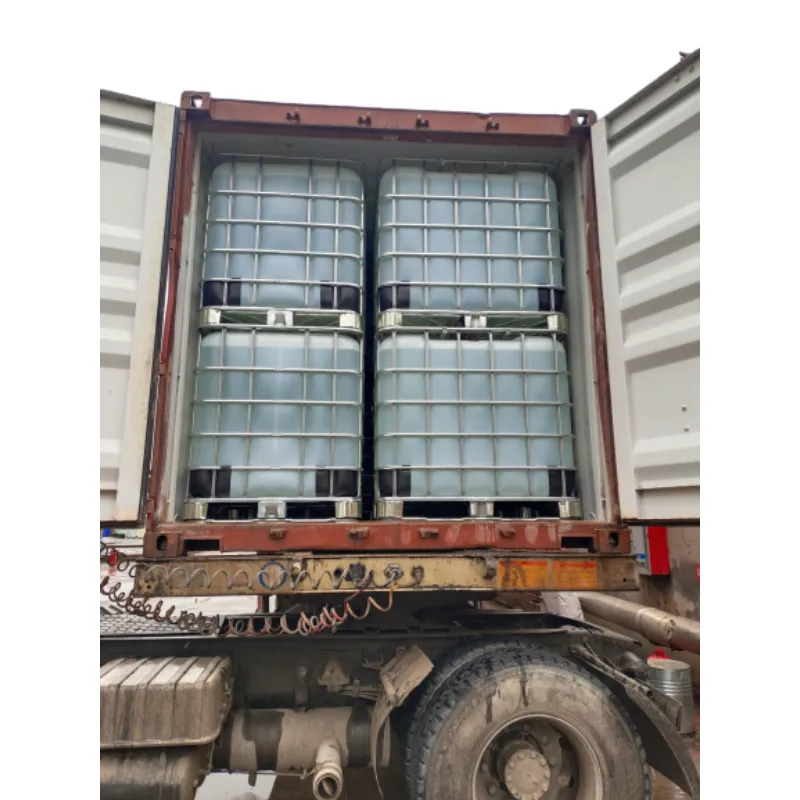
Triisopropanolamine (TIPA): Boost Concrete Performance
Unlocking Industrial Efficiency with Triisopropanolamine: A Core Chemical Compound
In the dynamic landscape of industrial chemistry, Triisopropanolamine (TIPA) stands out as a versatile and indispensable chemical compound. As a tertiary amine and a triol, TIPA's unique molecular structure, characterized by three hydroxyl groups and a tertiary amino group, endows it with exceptional properties making it invaluable across a multitude of applications. The global chemical industry is witnessing a consistent demand for high-performance additives that enhance material properties and optimize processes. TIPA precisely fits this requirement, offering solutions ranging from improved grinding efficiency in cement production to advanced catalytic activity in polymer synthesis. Current market trends indicate a growing emphasis on sustainable and efficient chemical solutions, driving innovations in TIPA's synthesis and application methodologies. This compound's low volatility and excellent thermal stability also contribute to its widespread adoption in demanding industrial environments, ensuring consistent performance and long-term reliability for B2B stakeholders seeking to optimize their operational outputs.
The demand for Triisopropanolamine is primarily fueled by the robust growth in the construction sector, particularly in emerging economies where infrastructure development is accelerating. Beyond cement, its utility in personal care products, textile finishing, and metalworking fluids further solidifies its market position. Manufacturers are continuously exploring new synthesis routes to enhance purity and reduce production costs, ensuring a competitive supply chain. Furthermore, the increasing regulatory scrutiny on chemical safety and environmental impact is prompting producers to invest in cleaner manufacturing processes for TIPA, aligning with global sustainability goals. This commitment to both performance and ecological responsibility positions TIPA as a key enabler for various industrial advancements, providing a reliable foundation for critical chemical formulations and manufacturing processes that require precision and efficiency.
Technical Specifications and Chemical Purity of Triisopropanolamine
Understanding the precise technical parameters of Triisopropanolamine is crucial for its effective deployment in industrial applications. As a crucial additive, its chemical purity and physical properties directly influence the performance of end products. Our high-grade TIPA typically boasts a purity level exceeding 99%, ensuring minimal impurities and consistent reactivity. This high purity is critical for sensitive applications such as the formulation of high-performance concrete admixtures, where even trace contaminants can affect setting times or final strength. The molecular structure of TIPA (C9H21NO3) provides it with a unique set of characteristics, including excellent solubility in water and various organic solvents, making it highly versatile for different formulations.
| Parameter | Specification | Testing Method/Standard |
|---|---|---|
| Chemical Formula | C9H21NO3 | — |
| CAS Number | 122-20-3 | — |
| Molecular Weight | 191.27 g/mol | — |
| Appearance | Colorless to Pale Yellow Viscous Liquid | Visual Inspection |
| Purity (GC) | ≥ 99.0% | ASTM D6127 / GB/T 15617 |
| Specific Gravity (25°C) | 1.020 - 1.025 | ASTM D891 |
| Hydroxyl Value | 870 - 890 mg KOH/g | ASTM D4274 |
| pH (10% aq. solution) | 10.5 - 11.5 | ASTM D1293 |
| Boiling Point | 277°C (at 1013 hPa) | — |
| Flash Point | 155°C (Closed Cup) | ASTM D93 |
Our commitment to quality ensures that every batch of Triisopropanolamine meets stringent international standards, including ISO 9001 quality management systems. This adherence to rigorous specifications guarantees not only optimal performance but also compliance with diverse industry regulations, providing our clients with peace of mind. The precise control over these parameters allows for consistent product formulation and reliable end-product performance across various industrial sectors.
The Advanced Manufacturing Process of Triisopropanolamine
The production of high-grade Triisopropanolamine involves a sophisticated chemical synthesis process, typically initiating with the reaction of propylene oxide (PO) and ammonia (NH3). This exothermic reaction, known as amination, is carefully controlled to achieve optimal yield and selectivity towards TIPA, while minimizing undesirable byproducts such as mono- and di-isopropanolamines. The raw materials used are sourced from reputable suppliers and undergo stringent quality checks to ensure their purity and consistency. For example, our manufacturing facilities adhere to international standards like ANSI/API for material quality in reactors and distillation columns, ensuring structural integrity and preventing contamination.

An overview of a modern chemical processing unit, similar to those involved in TIPA production.
The manufacturing process often employs continuous flow reactors, which allow for precise temperature and pressure control, critical for optimizing reaction kinetics and product purity. Following the primary reaction, the crude TIPA mixture undergoes multiple purification stages. These stages typically include multi-effect distillation, where different amine fractions are separated based on their boiling points, and sometimes further treatment such as activated carbon filtration to remove trace impurities and achieve the desired clarity and color. Every stage of production, from raw material intake to final product packaging, is subjected to rigorous quality control measures, including advanced analytical techniques like Gas Chromatography (GC) and spectroscopy, to ensure compliance with the specified technical parameters and industry standards. This meticulous approach guarantees the high performance and reliability of our Triisopropanolamine for all industrial applications, offering exceptional longevity in demanding conditions, particularly in industries like petrochemicals and metallurgy where consistency is paramount.
Key Applications and Industry Advantages of Triisopropanolamine
Triisopropanolamine is a highly versatile chemical, finding critical applications across several major industries. Its primary use as a grinding aid in cement production is widely recognized, where it significantly enhances grinding efficiency, leading to reduced energy consumption and increased cement mill output. This translates directly into substantial cost savings for cement manufacturers. Furthermore, TIPA improves the early strength development of concrete and reduces the water-to-cement ratio, resulting in more durable and robust concrete structures. In the metalworking industry, TIPA acts as an effective corrosion inhibitor and emulsifier in metalworking fluids, extending the lifespan of tools and machinery and preventing rust, which is crucial for precision manufacturing.

High-performance concrete incorporating TIPA for enhanced strength and workability.
Beyond these, TIPA also serves as a crucial component in polyurethane foam catalysts, ensuring uniform cell structure and consistent curing rates in insulation and cushioning materials. In the realm of paints and coatings, it functions as a dispersing agent and pH neutralizer, improving pigment dispersion and paint stability, which is vital for achieving uniform color and extended shelf life. Its corrosion-inhibiting properties are also leveraged in water treatment and cooling systems, protecting pipelines and equipment in industries like petrochemicals and power generation from corrosive degradation. The compound’s ability to function effectively under a range of temperatures and pH levels makes it an exceptionally adaptable solution for complex industrial formulations, providing robust anti-corrosion and energy-saving benefits across diverse applications, from large-scale water supply and drainage systems to intricate metallurgical processes.
Technical Superiority and Performance Excellence
Our Triisopropanolamine stands apart due to its superior technical profile, delivering tangible performance advantages across its myriad applications. For instance, in cement grinding, TIPA acts as a clinker dispersant and a grinding aid. The polar nature of TIPA molecules helps to neutralize the electrostatic charges on cement particles, preventing reagglomeration and allowing for more efficient milling. This results in finer cement particles, leading to higher early and later strengths of concrete, and a significant reduction in grinding energy consumption – typically 10-15% according to industry reports. Its efficacy as an accelerator in concrete admixtures contributes to faster setting times, enabling quicker turnaround for construction projects. This level of performance is consistent across batches, reflecting our strict adherence to quality assurance protocols and advanced processing technologies.
In metalworking fluids, the excellent chelating properties of TIPA allow it to sequester metal ions, preventing the formation of insoluble soaps and sludges, which can otherwise clog machinery and reduce fluid efficacy. Furthermore, its alkaline nature provides essential pH buffering, maintaining optimal fluid performance and preventing microbial growth, thereby extending fluid life and reducing maintenance costs. Our TIPA is tested against ASTM and ISO standards for its performance in these scenarios, demonstrating superior anti-corrosion rates compared to conventional additives. The consistent performance metrics, validated by third-party testing, underscore our authority and expertise in delivering a product that not only meets but often exceeds industry benchmarks, ensuring peak operational efficiency and durability for our B2B partners.
Tailored Solutions and Trustworthy Partnerships for Triisopropanolamine Supply
Recognizing that each industrial application has unique requirements, we specialize in providing customized Triisopropanolamine solutions. Our technical team works closely with clients to understand their specific formulation needs, offering tailored purity levels, concentration adjustments, and packaging options to perfectly integrate TIPA into their existing processes. This bespoke approach ensures optimal compatibility and maximizes the performance benefits for each client. For example, a major cement producer in Southeast Asia required a TIPA formulation optimized for high-temperature grinding conditions, and our R&D team successfully delivered a customized solution that improved their mill throughput by 12% while reducing clinker consumption. Our service commitment is underscored by over a decade of experience in the chemical supply chain, having successfully served diverse industries globally.

Rigorous quality control processes ensure the consistent purity and performance of our TIPA.
When considering manufacturers, it’s vital to assess not just product specifications but also service reliability, delivery capabilities, and post-sales support. While some manufacturers may offer slightly lower prices, they often compromise on purity or consistency, leading to downstream operational issues. We pride ourselves on maintaining a transparent supply chain, providing detailed Certificates of Analysis (CoA) with every batch, and adhering to strict international shipping regulations to ensure timely and safe delivery. Our long-standing partnerships with industry leaders and consistent positive client feedback, backed by ISO 9001 and REACH certifications, speak volumes about our trustworthiness. We offer flexible delivery schedules, including bulk shipments and smaller specialized container111s, designed to meet diverse logistical demands and ensure continuous operation for our clients.
Quality Assurance, Delivery, and Customer Support
Our commitment to quality assurance for Triisopropanolamine is unwavering, starting from the meticulous selection of raw materials to the final inspection of the packaged product. Every batch undergoes comprehensive testing in our state-of-the-art laboratories to verify its chemical purity, physical properties, and performance characteristics against our stringent internal benchmarks and international standards. We are proud to hold ISO 9001 certification, underscoring our robust quality management system, and our products comply with relevant regulatory bodies, including FDA standards for certain applications. This rigorous quality control process ensures that our TIPA consistently delivers the expected performance and reliability, minimizing risks for our clients and enhancing their product integrity.
Understanding the critical nature of supply chain reliability, we prioritize efficient logistics and clear delivery protocols. Our standard delivery cycle for bulk orders of TIPA ranges from 7 to 14 business days, depending on destination and specific client requirements, with expedited options available upon request. We utilize a global network of trusted logistics partners to ensure secure and timely shipments, providing real-time tracking and dedicated account managers for transparent communication. Furthermore, we offer a comprehensive 12-month quality guarantee from the date of delivery, demonstrating our confidence in the longevity and stability of our product. Our dedicated customer support team is available 24/7 to address any technical queries, provide application guidance, or resolve logistical concerns, ensuring seamless integration and satisfaction for every client.
Frequently Asked Questions (FAQ) about Triisopropanolamine
Q1: What is Triisopropanolamine primarily used for?
Triisopropanolamine (TIPA) is predominantly used as a grinding aid in cement production, a catalyst in polyurethane foams, an emulsifier and corrosion inhibitor in metalworking fluids, and a dispersing agent in paints and coatings. Its versatility stems from its unique chemical structure as both a tertiary amine and a triol.
Q2: How does TIPA improve cement grinding efficiency?
TIPA works by neutralizing the electrostatic charges on cement particles, preventing reagglomeration and allowing the mill to grind more efficiently. This results in finer cement, improved early strength, reduced water requirements, and significant energy savings (often 10-15%).
Q3: Is Triisopropanolamine safe for industrial use?
When handled according to Material Safety Data Sheet (MSDS) guidelines, Triisopropanolamine is safe for industrial use. It has low volatility and is generally considered non-toxic at typical industrial exposure levels. Proper personal protective equipment (PPE) and ventilation are recommended, as with any industrial chemical.
Q4: Can TIPA be customized for specific applications?
Yes, we offer customized solutions for TIPA. Our technical team can work with clients to tailor purity levels, concentrations, and packaging to meet specific formulation requirements and optimize performance for unique industrial processes.
Q5: What certifications does your TIPA product hold?
Our TIPA is manufactured under strict quality control protocols and is ISO 9001 certified. We also ensure compliance with relevant industry standards like ASTM and ANSI, and for certain applications, it meets FDA guidelines, ensuring high quality and regulatory adherence.
References
- Odler, I. (2000). Hydration, setting, and hardening of Portland cement. In Lea's Chemistry of Cement and Concrete (5th ed., pp. 241-297). Arnold.
- Ellis, J. W., & Smith, J. R. (2012). Modern Industrial Chemistry (3rd ed.). Wiley-VCH.
- ASTM International. (Various Standards, e.g., ASTM D6127 for Purity Analysis).
- ISO. (Various Standards, e.g., ISO 9001 for Quality Management Systems).
- American Concrete Institute (ACI). (Various Publications on Concrete Admixtures).
-
Regulatory Compliance for Global Mining Chemicals UseNewsAug.12,2025
-
Mechanism of 1 2 3 Benzotriazole Corrosion InhibitionNewsAug.12,2025
-
Catalyst Innovations for Ammonia Fertilizer SynthesisNewsAug.12,2025
-
Biological Pathways for Formic Acid MetabolismNewsAug.12,2025
-
Ammonium Bicarbonate Decomposition Temperature AnalysisNewsAug.12,2025
-
Aluminum Hydroxide in Vaccine AdjuvantsNewsAug.12,2025
-
Water Treatment Chemicals for Industrial ProcessesNewsAug.07,2025
Hebei Tenger Chemical Technology Co., Ltd. focuses on the chemical industry and is committed to the export service of chemical raw materials.
-

view more DiethanolisopropanolamineIn the ever-growing field of chemical solutions, diethanolisopropanolamine (DEIPA) stands out as a versatile and important compound. Due to its unique chemical structure and properties, DEIPA is of interest to various industries including construction, personal care, and agriculture. -

view more TriisopropanolamineTriisopropanolamine (TIPA) alkanol amine substance, is a kind of alcohol amine compound with amino and alcohol hydroxyl, and because of its molecules contains both amino and hydroxyl. -

view more Tetramethyl Thiuram DisulfideTetramethyl thiuram disulfide, also known as TMTD, is a white to light-yellow powder with a distinct sulfur-like odor. It is soluble in organic solvents such as benzene, acetone, and ethyl acetate, making it highly versatile for use in different formulations. TMTD is known for its excellent vulcanization acceleration properties, which makes it a key ingredient in the production of rubber products. Additionally, it acts as an effective fungicide and bactericide, making it valuable in agricultural applications. Its high purity and stability ensure consistent performance, making it a preferred choice for manufacturers across various industries.











